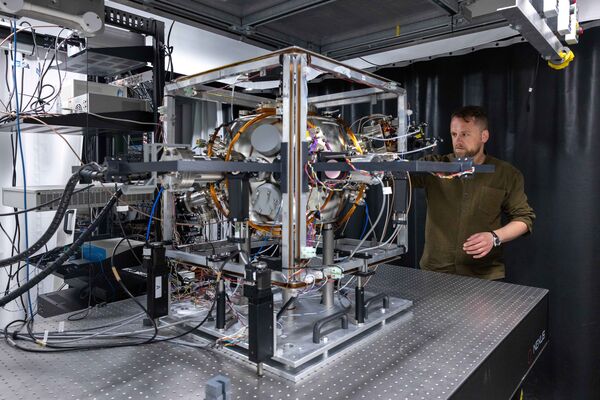
An image of a quantum accelerometer, which has been developed by Imperial College London. (Imperial College London)
A quantum atomic clock developed at the UK's Defence Science and Technology Laboratory (Dstl) will be deployable on military operations in the next five years, according to a 2 January UK Ministry of Defence (MoD) press release.
The technology will improve the UK's operational capability by reducing the military's reliance on the global navigation satellite services (GNSS).
The UK-made atomic device is the first of its kind and “will be a leap forward in improving intelligence, surveillance, and reconnaissance”, according to the MoD statement. “The clock's precision is so refined that it will lose less than one second over billions of years.”
Some of the clock's capabilities include the securing of communications systems and enhanced accuracy of advanced weapon systems such as guided missiles. Further research will see the atomic clock decrease in size, allowing for use by military vehicles and aircraft, according to the MoD.
The trial of the atomic device involved collaboration between academia and industry partners including Infleqtion, Aquark Technologies, HCD Research, and Imperial College London. The trial also involved in-house technology developed by Dstl's quantum laboratory.
“In the next few years, the ability to operate effectively, to survive, and to navigate and also to remain lethal with the use of quantum alongside GPS will secure operational advantage,” Commander Matt Steele, future technology officer for the Royal Navy's (RN's) Office of the Chief Technical Officer stated in the press release.
Looking to read the full article?
Gain unlimited access to Janes news and more...







